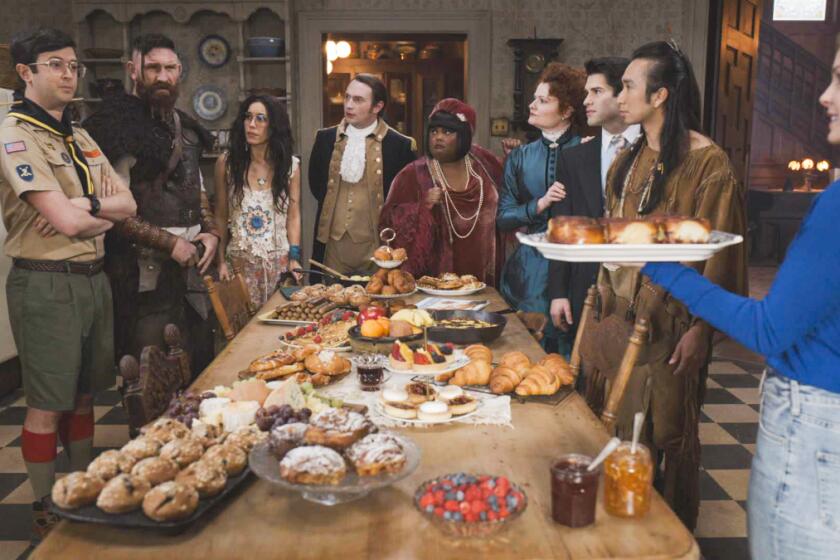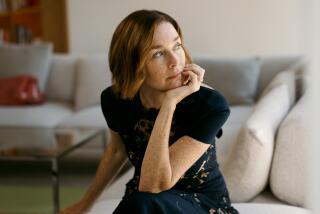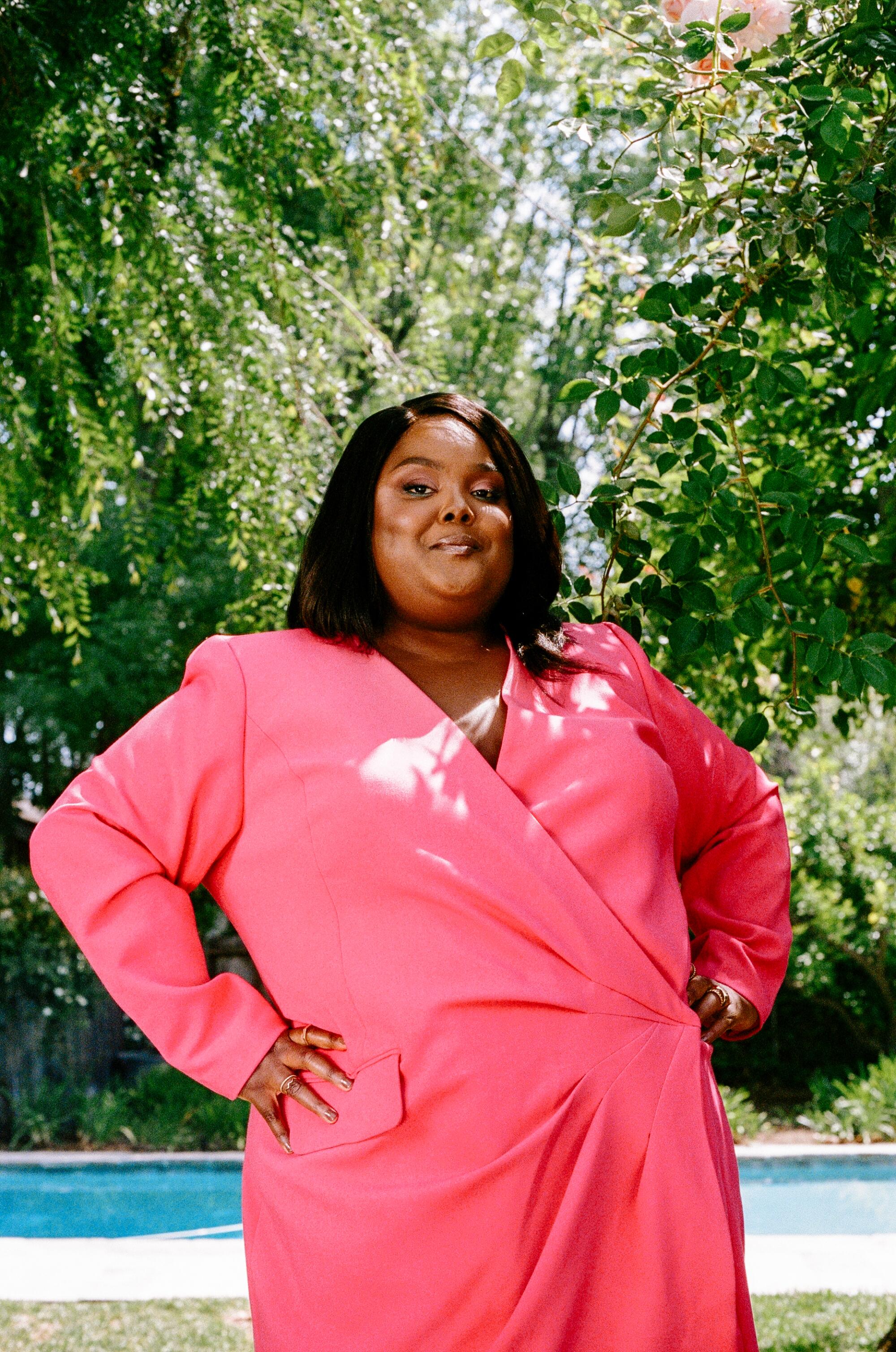
Danielle Pinnock will never forget her audition for “Ghosts,” the CBS sitcom about a young couple (played by Rose McIver and Utkarsh Ambudkar) who inherit a quaint country estate inhabited by many of its deceased previous residents.
It was in the early months of the COVID-19 pandemic when Pinnock, an experienced character actor whose previous credits included “Young Sheldon,” “Scandal” and “This Is Us,” found herself in the running to play Alberta Haynes, a Prohibition-era lounge singer who is something of a den mother to the gaggle of ghosts. Before recording her self-tape audition, the actress procured a few key props: one of her mother’s wigs, a cheap faux-fur shawl, an old birthday dress and a little red hat.
That creative vision for her “delicious diva,” paired with her comedic timing, was enough to land Pinnock her first series regular role on network television’s second most-watched comedy. It’s a career milestone that is not lost on the 34-year-old Jamaican American actress, who has made it her mission to change how plus-size Black women are portrayed on-screen.
“A lot of what I do is to pay homage to women like Hattie McDaniel, because they never got the chance to explore their characters fully,” Pinnock says on a recent video call. “And even with the little that they had, they were still able to deliver such iconic performances. So now, with the freedom that I have as an actor, it is so important to me to make sure that the representation is right.”
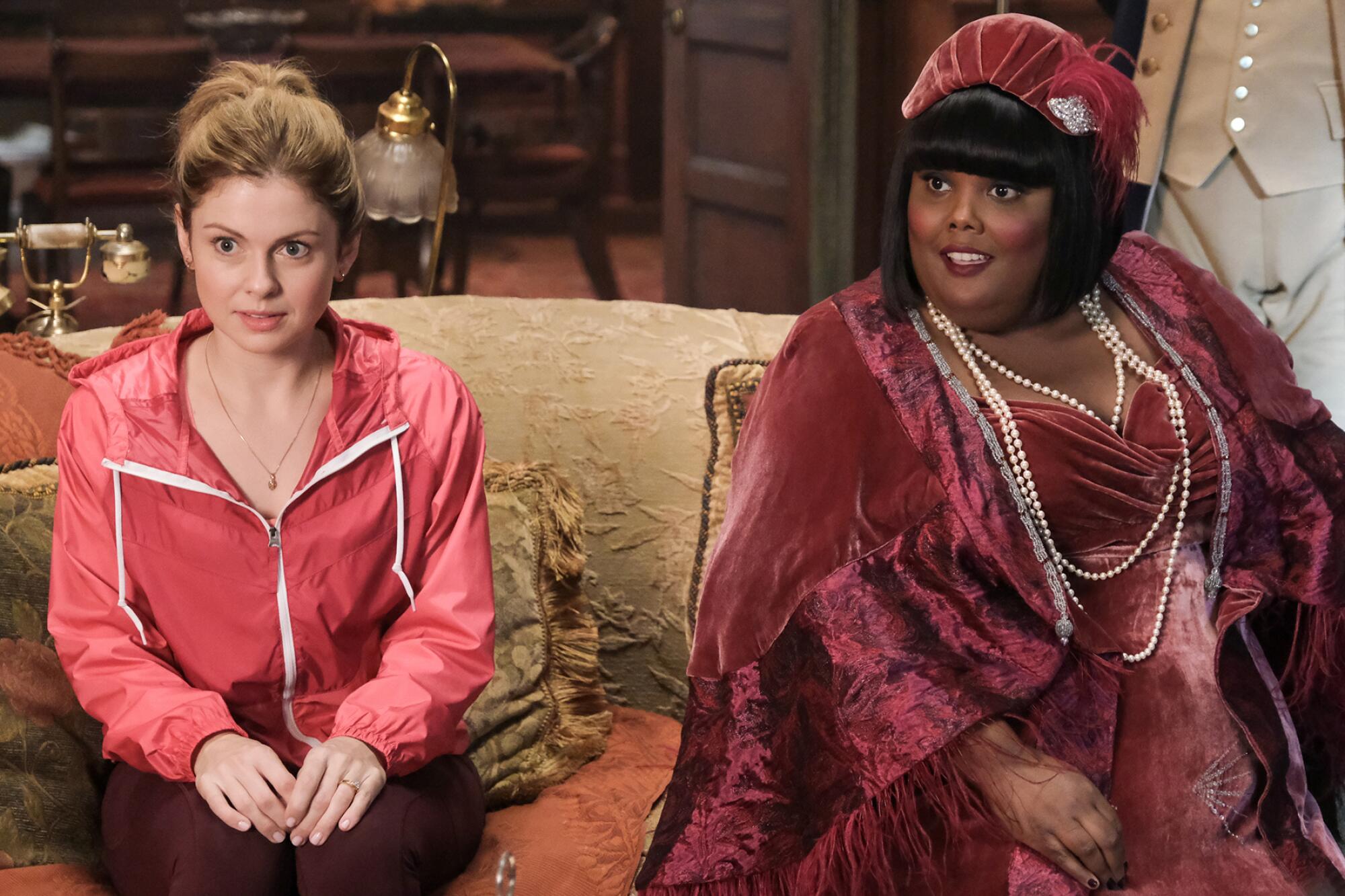
Growing up in New Jersey, Pinnock, an only child raised by an immigration attorney single mother, first began acting in school plays as an extracurricular activity. Despite the initial objections of her immigrant mother, who wanted her to pursue a career in law or STEM, Pinnock graduated with a bachelor’s degree in theater and communications from Temple University and a graduate degree in acting from the Royal Birmingham Conservatoire. Although she was able to find work on stage in her 20s, Pinnock eventually decided that, if Hollywood producers weren’t going to give her the “yeses” that she was looking for, she would have to create her own opportunities.
Hoping to follow in the footsteps of such Black women as Whoopi Goldberg, Niecy Nash and Issa Rae, who have forged their own paths in the industry, Pinnock turned her dissertation project into a one-woman show called “Body/Courage” for which she interviewed over 300 people from around the world about their body image and staged productions using those insights in New York City and Chicago. In 2018, with LaNisa Frederick, she launched “Hashtag Booked,” an online series about the misadventures of being an actress of color in the entertainment industry.
The It Takes a Village comedy is one of broadcast television’s most reliable forms. And we may need its comforts now more than ever.
But it’s Pinnock’s work on “Ghosts” that has given her a life-changing amount of visibility. Once she secured the part, she did a deep dive into the Roaring ‘20s (which she says were “a very sexy time for people”), learned how to dance the Charleston and Lindy Hop and started taking weekly singing lessons. With her bangs and bobbed wig, crushed velvet and feathery outfit, pearl necklace and Mary Janes, Alberta is “by far the most glamorous ghost in the house,” says Pinnock, who has drawn inspiration from the likes of Ma Rainey and Bessie Smith to tap into the overt confidence of her character.
“I had a responsibility to make sure that this 1920s character stood out, not just because of her iconic, laugh-out-loud one-liners, but I also wanted to make sure that I steered away from any and all ‘Mammy’ stereotypes,” Pinnock adds. “So anytime our writers gave Alberta a story line, I respectfully urged them always to go deeper — to give her emotion, vulnerability and humanity.”
Case in point: After establishing that Alberta’s pursuit of fame stemmed from a deep-seated desire to make her family proud, showrunners Joe Port and Joe Wiseman presented Pinnock with an opportunity to travel back in time to her character’s heyday in the “Alberta’s Podcast” episode of the second season.
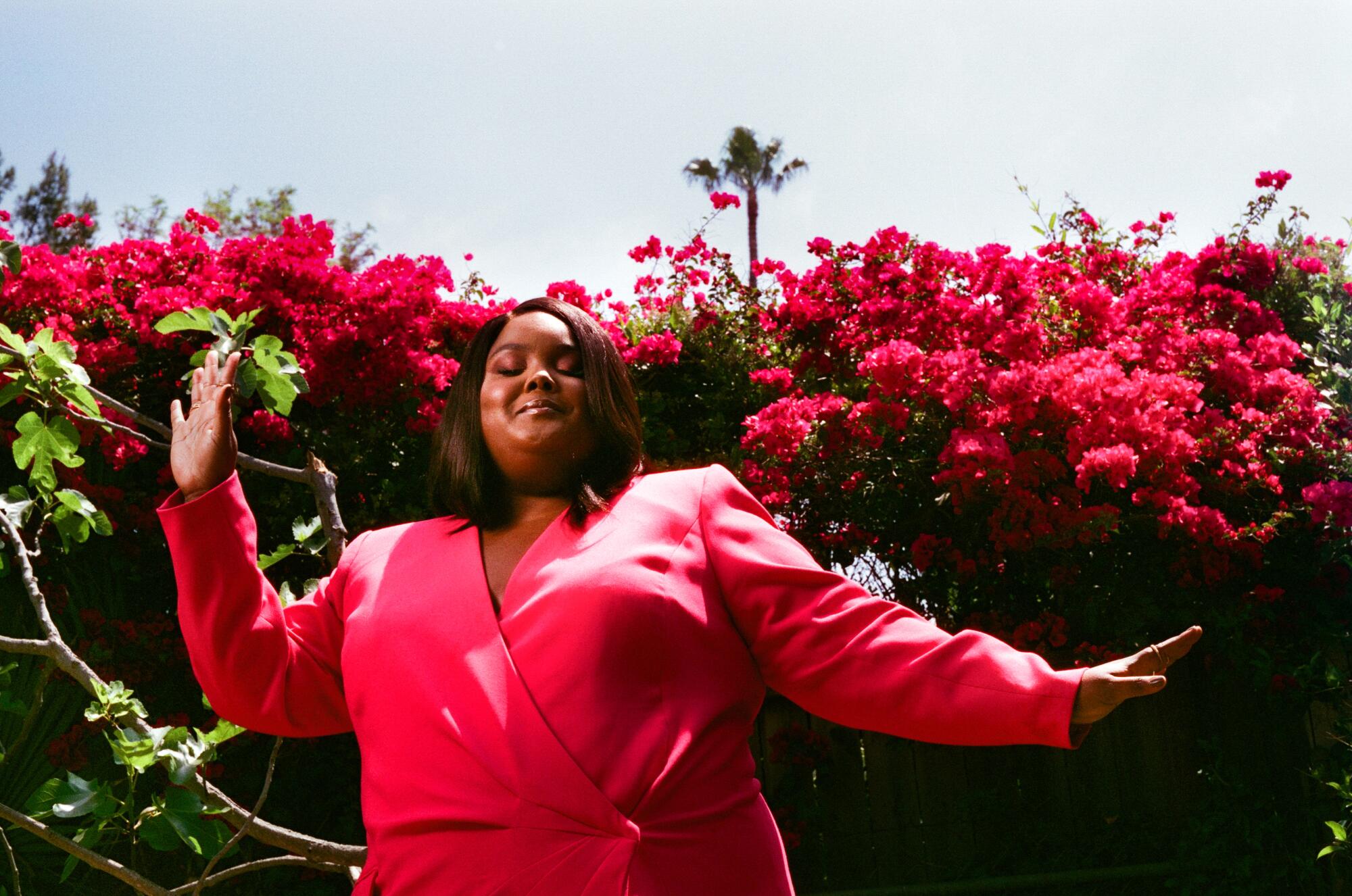
In addition to setting up a season-long whodunit around the singer’s death by poisoned moonshine, Pinnock says those flashbacks gave her a visceral understanding of her flamboyant character, who lived for the applause from spectators. “This is why she’s so over the top,” Pinnock recalls telling herself. “Anytime she walks in a room, she’s expecting that applause as a performer, even if she’s saying that it doesn’t matter. She wants the validation.”
Later in the season, Pinnock took center stage once more in “Alberta’s Descendant,” in which Alberta’s great-grandniece, Alicia (Ashley D. Kelley), visits the Woodstone Mansion to learn more about her kin. That episode was a particularly tall order, requiring an all-hands-on-deck, collaborative approach. For instance, when the initial script fell flat during the table read, Pinnock sat down with the showrunners, who are white men, to adjust the language that the Black female characters use. And since Alberta never had children of her own, they agreed that in the rewritten script, she would treat Alicia like the daughter she never had.
Having that kind of open dialogue with the executive producers has become important to Pinnock, who felt comfortable enough to pitch a sequence in the season finale that pays homage to Viola Davis’ famous wig scene in “How to Get Away With Murder” and depicts Alberta “quite literally getting ready for her own death.” “I was like, ‘Let’s embalm her. Let’s get the pearls together. Let her put the wig on.’ We haven’t seen anybody [on the show making] those death preparations yet,” she says happily.
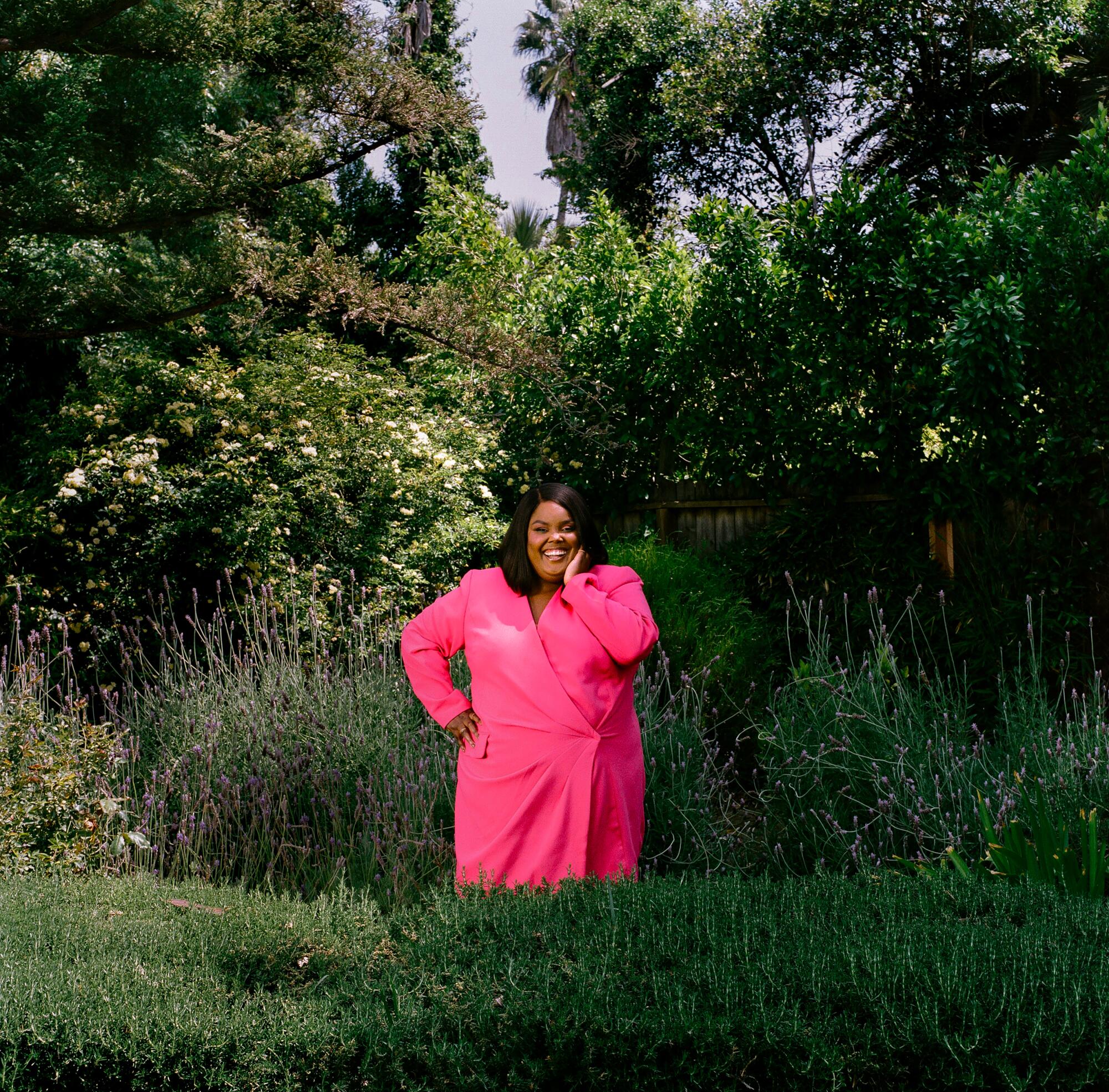
More to Read
From the Oscars to the Emmys.
Get the Envelope newsletter for exclusive awards season coverage, behind-the-scenes stories from the Envelope podcast and columnist Glenn Whipp’s must-read analysis.
You may occasionally receive promotional content from the Los Angeles Times.
